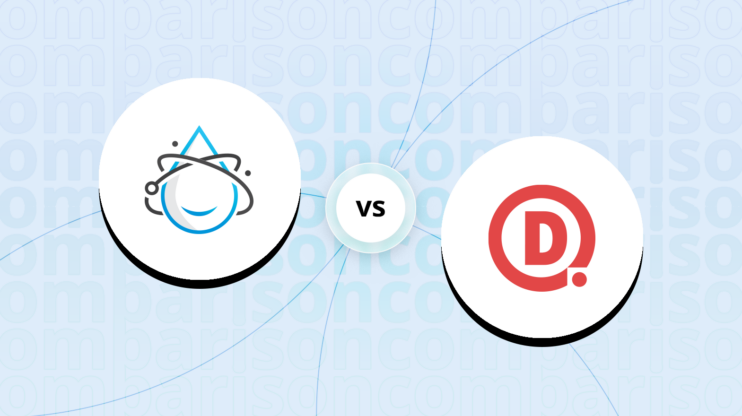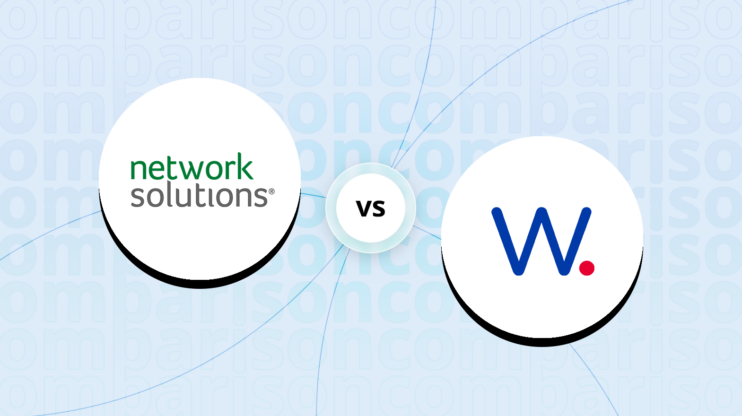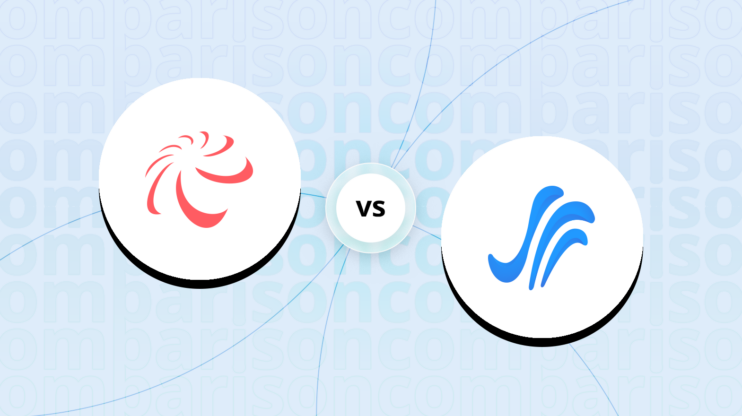Hostinger vs Hostgator: Final verdict
When comparing Hostinger and HostGator, both providers offer compelling features for different user needs, with Hostinger taking a slight edge in various aspects.
-
Hostinger (Overall grade: 8.7)
is well-regarded for its impressive uptime, affordability, superior website speed, and a feature-rich environment. It offers various types of hosting, including cloud hosting, which HostGator lacks. Hostinger’s standout features include its high-speed NVMe storage, LiteSpeed web servers, and a global CDN that enhances performance. Its custom-built hPanel is user-friendly, and it provides strong support with multilingual live chat available 24/7. Although it misses out on offering dedicated hosting and phone support, its competitive pricing and extensive features make it an excellent choice for small to medium-sized enterprises, eCommerce, high-traffic websites, and agencies.
HostGator (Overall grade: 8.0)
is known for its comprehensive customer support, flexible hosting plans, and solid performance with free SSL certificates and unmetered bandwidth across many tiers. It offers dedicated hosting, an area where Hostinger is lacking. HostGator’s familiar cPanel and supportive resources like Cloudflare CDN contribute to an efficient hosting experience. Despite its strengths, HostGator falls short in terms of uptime and speed compared to Hostinger, and its renewal pricing can be a drawback. It’s more suitable for users needing dedicated server options or requiring various third-party integrations, particularly for multimedia-heavy websites.
 Overall grade:8.7 |
 Overall grade:8.0 |
|
|---|---|---|
| Uptime and Availability | 9.2 | 7.6 |
| Hosting Performance | 9.0 | 7.7 |
| Hosting Security | 8.4 | 8.6 |
| Price | 8.8 | 7.4 |
| Hosting Features | 8.3 | 7.5 |
| Ease Of Setup | 9.0 | 8.7 |
| User Management | 8.2 | 7.8 |
| Customer Support | 8.3 | 8.6 |
| User feedback | 4.4/5 | 3.6/5 |
Hosting types offered
Both platforms provide a variety of hosting types, each designed to meet the different needs of users.
 |
 |
|
|---|---|---|
| Shared hosting | ||
| Cloud hosting | ||
| WordPress hosting | ||
| Ecommerce hosting | ||
| VPS hosting | ||
| Dedicated hosting |
Although both offer a variety of hosting plans tailored to different needs, in certain cases, one platform may prove to be more suitable.
Detailed comparison
Uptime and availability
Evaluates the average uptime statistics, uptime guarantee and overall availability of the hosting
provider
Score Components:
- Uptime percentage (30%): evaluates the uptime statistics in given period of time
- Uptime guarantee (20%): Assesses if the platform offers an uptime guarantee and
whether the actual uptime matches the promised guarantee. - General performance (25%): Evaluates how fast is the average response time and overall
it’s stability. - Responsiveness (10%): Adaptability to different devices and screen sizes.
- Availability (25%): Reflects the total downtime and number of outages.
 9.2
9.2
 7.6
7.6
🏆 Winner Hostinger: A reliable hosting provider with a superior uptime record.
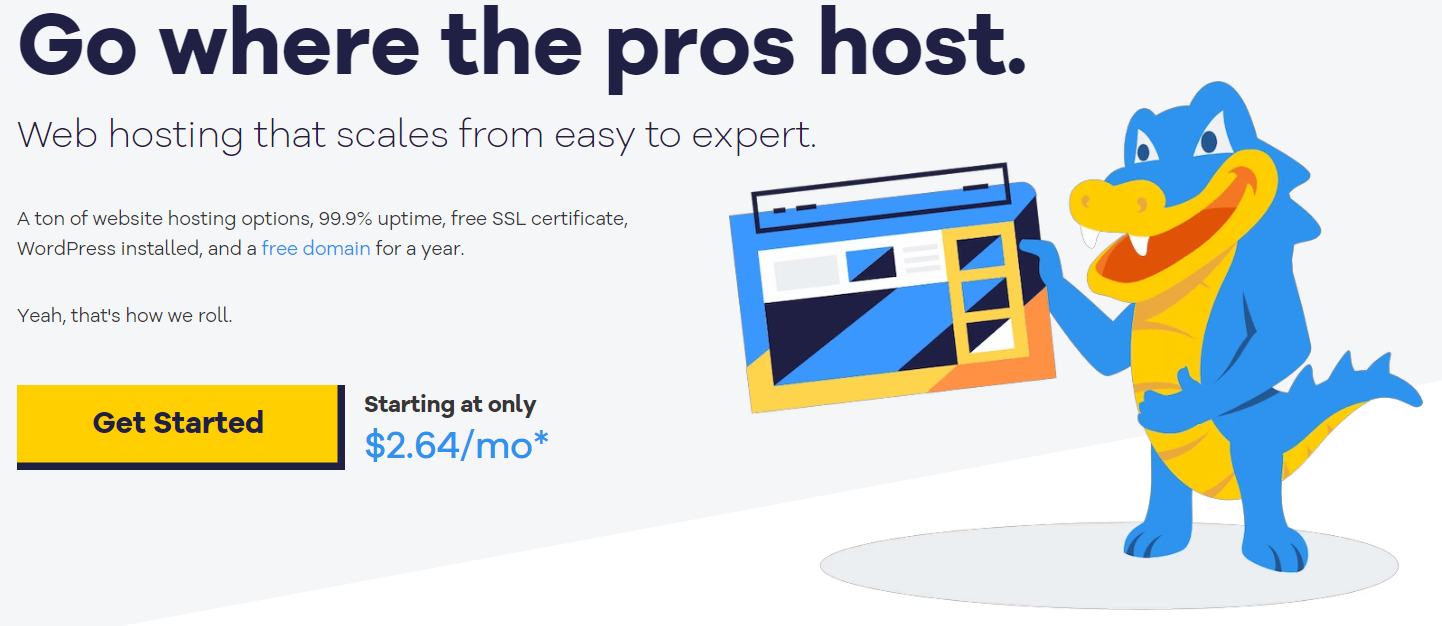
Hostinger edges out HostGator due to its excellent uptime and performance metrics. Hostinger has consistently maintained an average uptime of 99.97% over the last six months, and even achieved a perfect 100% uptime over ten weeks of monitoring. Additionally, Hostinger boasts an average response time ranging between 450ms and 625ms, with some tests showing an impressive 382ms response time. Hostinger’s global data centers further ensure minimal latency and maximum speed.

Hostinger offers a plethora of features designed to enhance uptime and availability. These include enhanced DDoS protection, a web application firewall, and Cloudflare protected nameservers. Other key features are a malware scanner, secure access manager, and automated daily backups. Hostinger provides 24/7 customer support with a quick resolution promise, and a 30-day money-back guarantee if customers are not fully satisfied. HostGator, though reputable, falls short with its basic 99.9% uptime guarantee, which translates to more downtime annually compared to Hostinger.
Which one has better hosting performance?
Score Components:
- Hosting speed (30%): This includes SSD quality, Load times, PageSpeed score ranges,
additional information on website speed, built-in plugins for performance enhancement, available caching
methods, and CPU/RAM options - CDN (20%): Considers whether CDN is available or not, whether it’s free or paid, and
the quality of the CDN service - Available data centers (30%): Evaluates the number of data centers and their locations
globally. - Scalibility (20%): Looks at whether elastic scaling is available, the process required
to scale (manual upgrade vs. automatic scaling), the presence of dedicated servers, and the costs
associated with scaling.
 9.0
9.0
 7.7
7.7
🏆 Winner
Hostinger: Exceptional site speed and extensive performance features.
When comparing Hostinger and HostGator, Hostinger clearly stands out in terms of performance features. Hostinger’s high-speed CPUs, NVMe storage, HTTP/3, and IPv6 support, along with its LiteSpeed web servers and integrated caching plugins, provide significant enhancement for website load times. Additionally, Hostinger offers a global CDN with data centers in Europe, Asia, North America, and South America, ensuring quick content delivery across various regions. On the other hand, HostGator provides competitive speed with SSD storage and Cloudflare CDN for faster page loads but lacks some of the advanced performance tools Hostinger offers. HostGator’s support infrastructure includes various vCPU plans and unmetered bandwidth but doesn’t quite match Hostinger’s extensive data center network.
Website Speed
Hostinger excels in website speed with its NVMe storage, which ensures faster data access compared to traditional storage methods. The LiteSpeed web servers and LSCWP Cache Plugin further enhance page load times, making websites significantly faster. Hostinger’s performance is also bolstered by its Object Cache, reducing response times by up to 3x. HostGator offers solid speed improvements with SSD storage and Cloudflare CDN but doesn’t provide the same level of integrated performance enhancements as Hostinger.
Scalability
Hostinger offers scalable hosting solutions with clear upgrade paths between Cloud Startup, Cloud Professional, and Cloud Enterprise plans. Automatic scaling isn’t specified, necessitating manual upgrades as your website grows. Hostinger includes dedicated server options as part of its service. The cost to scale is relatively transparent, with tiered pricing based on resource needs. HostGator also supports scalability with various plans designed to accommodate growing websites, but specific details on automatic scaling and costs are not provided.
Which one has better security features?
and regulatory requirements
Score Components:
- Technical security measures (40%): This includes encryption, firewalls, DDoS
protection, secure configurations, server monitoring, access control and availability of security addons
(e.g Sitelock security). - Operational security measures (30%): Encompasses data privacy, backups and data
redundancy. - Compliance and certifications (20%): Adherence to legal and regulatory requirements
(e.g., GDPR, HIPAA) and possession of certifications (e.g., ISO 27001, SOC 2). - Business and reliability (10%): Factors in the provider’s reputation, uptime
guarantees, and customer support.
 8.4
8.4
 8.6
8.6
🏆 Winner
HostGator: Offering robust security features, higher compliance, and extensive support, HostGator stands out as a more secure hosting environment.
Both Hostinger and HostGator, have notable differences in their approaches to technical and operational
security, as well as in their compliance with regulations.
Technical security measures:
Both Hostinger and HostGator offer comprehensive SSL certificates for data encryption and protection against unauthorized access. Hostinger provides free SSL certificates with automatic renewal and custom SSL installation, while HostGator offers additional SSL plans, including Positive SSL, Single Domain SSL, Wildcard SSL, and EV SSL with various warranty levels. Hostinger features advanced security modules like mod_security and Suhosin PHP hardening, while HostGator uses SiteLock Security for automatic malware detection and removal. Both hosts support PHP version control, with HostGator supporting PHP 8.2.
Operational security measures:
Hostinger implements 24/7 server monitoring, regular vulnerability scans, and DDoS protection alongside a dedicated internal security team and responsible disclosure policy. HostGator includes SiteLock Security, Cloudflare CDN, and CodeGuard Backup, in addition to its substantial customer support via multiple channels. Hostinger’s security recommendations for users and regular static code analysis improve user-led security. Both providers offer GDPR compliancy, but HostGator extends its operational security measures with 24/7/365 customer support and a comprehensive money-back guarantee.
Compliance and certifications:
Hostinger complies with GDPR regulations and explicitly mentions it is not intended for PCI and HIPAA environments. HostGator is GDPR compliant, manages server PCI compliance, and ensures SSL for secure credit card transaction data. HostGator’s operational practice makes it adaptable for more compliance, including server-related PCI compliance, although software PCI compliance needs user-specific adjustments.
 |
 |
|
|---|---|---|
SSL certificate |
Free SSL, automatic renewal, custom installation |
Free SSL, Positive SSL upgrade, various SSL plans |
Additional security features |
Advanced security modules, malware scanner |
SiteLock Security, Cloudflare CDN, CodeGuard Backup |
PHP versions |
PHP version control |
PHP 8.2 |
GDPR compliance |
Yes |
Yes |
HIPAA compliance |
Not specified |
Not specified |
PCI compliance |
No |
Server PCI compliance |
Hosting features
Score Components:
- Domains (20%): Assesses the availability of a free domain, domain purchase options, and
pricing - Email (15%): Considers if the provider offers full email hosting, or is reselling
third-party service, and if the email is only transactional or not - Website builder (15%): Checks if website builder is available, and it’s user
friendliness and overall the level of customization allowed. - Staging environment (20%): Determines if a staging environment is available, allowing
for testing changes before going live. - FTP & SFTP accounts (10%): Evaluates if and how easily users can access FTP and
SFTP accounts - Git and SSH access (20%): Assess whether Git is integrated into the hosting service and
if SSH access is provided
 8.3
8.3
 7.5
7.5
🏆 Winner: Hostinger: A secure and feature-rich hosting provider with robust performance and advanced tools.
Hostinger and HostGator offer an array of features catering to both novice and advanced users. Hostinger boasts a custom-built hPanel control panel, enhanced security tools like Imunify360, and AI-powered website builder, making it intuitive for users to create and manage their sites. On the other hand, HostGator uses the widely recognized cPanel, along with a variety of advanced features such as full Unix shell access and CGI support, appealing to more technical users. Both providers include free domain registration for the first year and offer free SSL certificates, ensuring secure and reliable setups. A unique selling point for Hostinger is its global data centers, providing users from different regions with optimal performance. Meanwhile, HostGator’s flexible and advanced plans, from shared to dedicated hosting, present customizable options for growing businesses.
 |
 |
|
|---|---|---|
Free domain |
Yes, for the first year |
Yes, for the first year |
Free SSL |
Yes |
Yes |
Email hosting |
Yes |
Yes |
Website builder |
Yes, AI-powered |
Yes |
Staging environment |
No |
Yes |
FTP & SFTP accounts |
Yes |
Yes |
Git and SSH access |
Yes |
Yes |
Free backup |
Yes |
Yes, for the first year |
Money back guarantee |
Yes, 30 days |
Yes, 30 days |
a location.
As a result in rare cases the features mentioned here can differ from the ones you see on their websites.
FTP/SFTP and SSH access are standard with both Hostinger and HostGator, making file management and secure access straightforward. Hostinger enhances this with LiteSpeed Web Server and SSD storage for faster performance. HostelGator, however, includes NGINX caching and a DDoS protection scrub center, ensuring better server response times and security. Hostinger’s daily and on-demand backups add an extra layer of data safety, along with automated website migration to facilitate easy transitions. HostGator, however, matches this with its unlimited bandwidth and powerful VPS and dedicated server plans, which offer full root access and robust email hosting solutions. For WordPress users, both providers come with optimizations, but Hostinger steps ahead with built-in AI and automated updates, enhancing the user experience significantly.
Email Services:
Both Hostinger and HostGator provide comprehensive email hosting, allowing users to set up their own email campaigns and handle transactional emails. Hostinger includes SSL for securing email communication and integrates easily with various email clients. HostGator offers unlimited email accounts with its VPS and dedicated server plans and sells third-party services like Google Workspace. HostGator’s platform is flexible, catering to businesses looking for extensive email marketing capabilities. Each provider caters well, but HostGator’s additional third-party integrations can be particularly beneficial for businesses with complex email needs.
Price
Score Components:
- Plan value (40%): What each pricing tier offers.
- Transparency and clarity (30%): Clearness of pricing structures.
- Flexibility of plans (20%): Range of options to suit different budgets.
- Hidden costs (10%): Additional expenses not included in the plan.
 8.8
8.8
 7.4
7.4
🏆 Winner Hostinger: Best value hosting services focused on affordability and feature-rich plans catering to a wide array of needs.
Evaluating the pricing of plans among various hosting providers can be complex due to their differing pricing and renewal strategies. Additionally, certain plans require annual commitments, which adds to the difficulty of making comparisons. The prices listed are based on monthly commitments; plans requiring annual commitments are indicated. Additionally, although some providers offer identical plans for WordPress and shared hosting, we have created separate tables for each to enhance clarity.
Hostinger offers a variety of affordable and feature-rich plans across different hosting types compared to HostGator. For instance, Hostinger’s Premium Web Hosting starts at $7.99/mo with numerous included benefits such as a free domain, SSL certificates, and WordPress acceleration tools. In contrast, HostGator’s Shared Hosting and WordPress Hosting plans are notably more expensive, starting at $17.99/mo and $21.99/mo, respectively, with fewer perks. Hostinger’s Cloud Hosting plans provide ample storage and resources at a lower starting price ($19.99/mo) compared to HostGator’s Reseller Hosting plans, which begin much higher at $91.99/mo. Additionally, Hostinger’s VPS Hosting is customizable and starts at a friendlier $4.99/mo, while HostGator’s VPS and Dedicated Hosting plans are significantly more costly.
 |
 |
|---|---|
|
Premium $7.99
Custom domain, WordPress multisite, 100 domain-based email addresses, WordPress themes, over 100 subdomains. Value for price:8.5
|
Baby Plan $21.99
2 websites, 20GB storage, unmetered bandwidth, phone & chat support, basic email, free domain 1st year, free SSL, WordPress pre-installed, malware scanning, Cloudflare CDN, increased performance (2 vCPUs). Value for price:6.5
|
|
Business $8.99
Custom domain, WordPress multisite, 100 domain-based email addresses, WordPress themes, over 100 subdomains. Value for price:8.2
|
Business Plan $27.99
3 websites, 40GB storage, unmetered bandwidth, phone & chat support, basic email, free domain 1st year, free SSL, WordPress pre-installed, malware scanning, Cloudflare CDN, increased performance (3 vCPUs), daily backups, domain privacy. Value for price:6.8
|
|
Cloud Startup $19.99
100 websites, 200GB NVMe storage, ~200,000 visits monthly, 2,000,000 files and directories (inodes), various premium features. Value for price:8.9
|
Pro Plan $34.99
5 websites, 100GB storage, unmetered bandwidth, phone & chat support, basic email, free domain 1st year, free SSL, WordPress pre-installed, malware scanning, Cloudflare CDN, maximum performance (5 vCPUs), daily backups, domain privacy. Value for price:6.9
|
 |
 |
|---|---|
|
Premium $7.99
100 websites, ~25,000 visits monthly, 100GB SSD storage, unlimited bandwidth, free pre-built templates, free automatic website migration, unlimited free SSL, weekly backups, and various WordPress features. Value for price:8.7
|
Hatchling Plan $17.99
Single website, 10GB SSD storage, unmetered bandwidth, basic email, free domain for the first year, chat support, cPanel. Value for price:6.4
|
|
Business $8.99
100 websites, ~100,000 visits monthly, 200GB NVMe storage, unlimited bandwidth, all Premium plan features plus daily and on-demand backups. Value for price:8.8
|
Baby Plan $21.99
Up to 2 websites, 20GB SSD storage, unmetered bandwidth, basic email, free domain for the first year, phone & chat support, cPanel. Value for price:6.3
|
|
Single $3.99
1 website, 50GB SSD storage, ~100GB bandwidth, various WordPress features, weekly backups, security features, and more. Value for price:8.2
|
Business Plan $27.99
Up to 3 websites, 40GB SSD storage, unmetered bandwidth, basic email, free domain for the first year, phone & chat support, cPanel. Value for price:6.5
|
 |
 |
|---|---|
|
Cloud Startup $19.99
300 websites, ~200,000 visits monthly, 200GB NVMe storage, 2,000,000 files and directories (inodes), numerous premium features. Value for price:9.0
|
N/A
Value for price:N/A
|
|
Cloud Professional $32.99
300 websites, 250GB NVMe storage, 6GB RAM, 4 CPU cores, 200,000 files and directories (inodes), numerous premium features. Value for price:8.9
|
N/A
Value for price:N/A
|
|
Cloud Enterprise $54.99
300 websites, 300GB NVMe storage, 12GB RAM, 6 CPU cores, 200,000 files and directories (inodes), numerous premium features. Value for price:8.8
|
N/A
Value for price:N/A
|
Enterprise plans
HostGator’s enterprise-level plans, such as the Enterprise Server ($141.99/mo), include up to an Intel Xeon-D CPU, 30GB of RAM, a choice between a 2TB HDD or 1TB SSD, and unmetered bandwidth. It provides premium security features like DDoS protection and an IP-based firewall. On the other hand, Hostinger offers customizable VPS hosting starting from $4.99/mo, catering to various enterprise needs with dedicated resources and full root access, often at more competitive rates.
Hostinger vs Hostgator: Ease of setup
platform.
Score Components:
- Site migration (25%): Assesses whether the provider offers tools for site migration,
either automated or manual, and whether these services are free or require a fee. - Admin panel usability (35%): Evaluates the type of admin panel provided, such as the
standard cPanel or a custom solution, focusing on its accessibility and user-friendliness for both
technical and non-technical users. - Setup features (20%): Examines the availability and ease of use of various setup
features, including FTP accounts, file managers, email account setup, PHPMyAdmin, and easy CDN
configuration. - Help center quality (20%): Measures the quality and accessibility of the provider’s
help center resources, including articles and tutorials.
 9.0
9.0
 8.7
8.7
🏆 Winner
Hostinger: A user-friendly hosting provider with an intuitive control panel and efficient setup tools.
Hostinger uses a custom-built control panel called hPanel, which is designed specifically to be user-friendly, especially for beginners. It allows users to easily set up professional email addresses, install content management systems, and use the website builder with minimal effort. The interface is clean and organized, making it accessible for users with varying levels of technical expertise. On the other hand, HostGator utilizes a standard control panel that also emphasizes ease of use. It provides users with a single dashboard to manage all their online activities, including web hosting and domain management. While functional and straightforward, HostGator’s control panel may require a bit more familiarity to navigate compared to Hostinger’s hPanel.
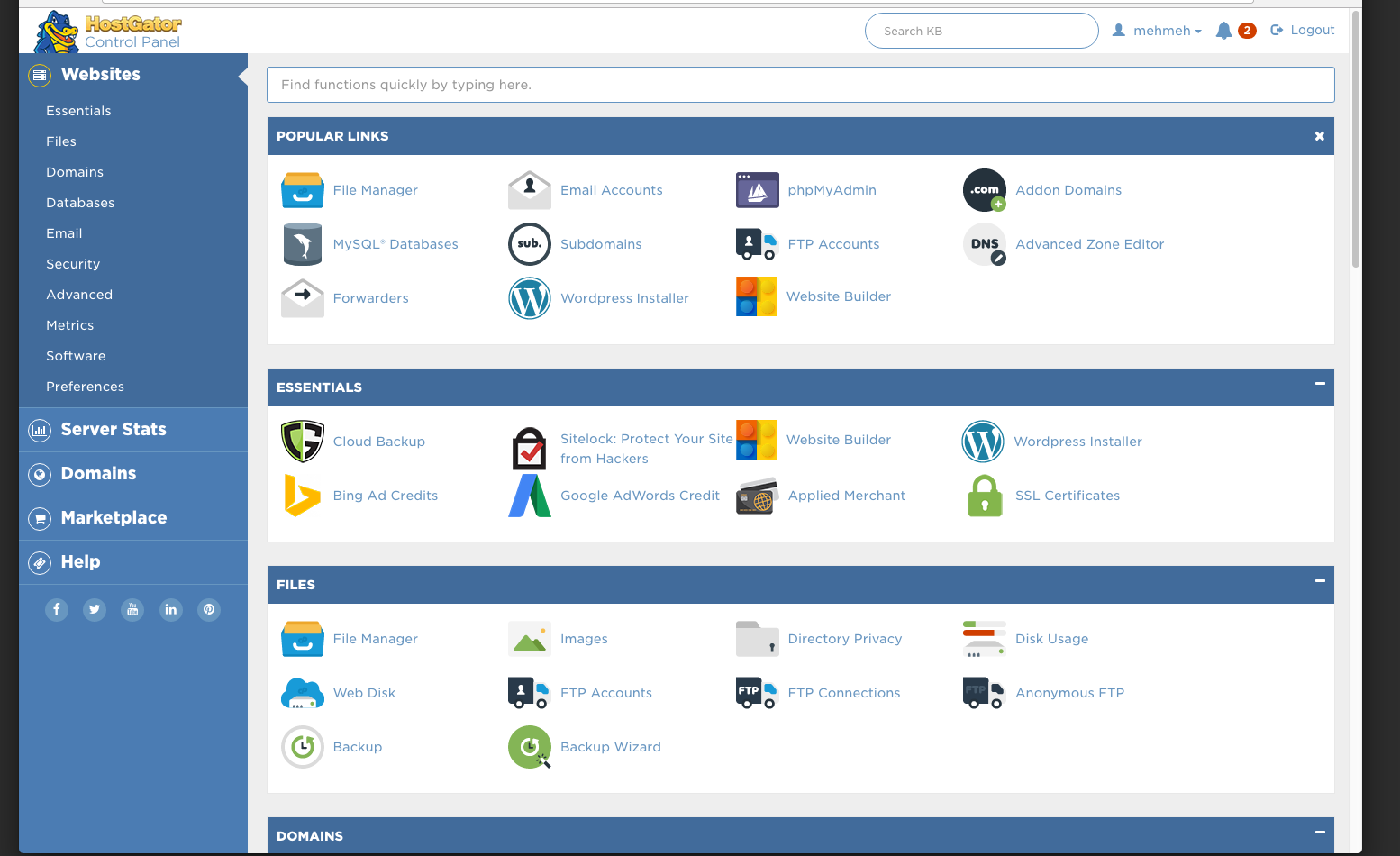
Both hosting providers offer one-click installation for various applications, but Hostinger has a slight edge with over 100 options to choose from, while HostGator supports over 75. This small difference can be advantageous for users looking for a specific application. Furthermore, Hostinger includes additional AI tools and automated updates, enhancing the overall user experience, particularly for those running WordPress or other applications. Although HostGator’s one-click installs and WordPress pre-installation are convenient, they lack the extra layer of intelligent support provided by Hostinger’s AI tools.
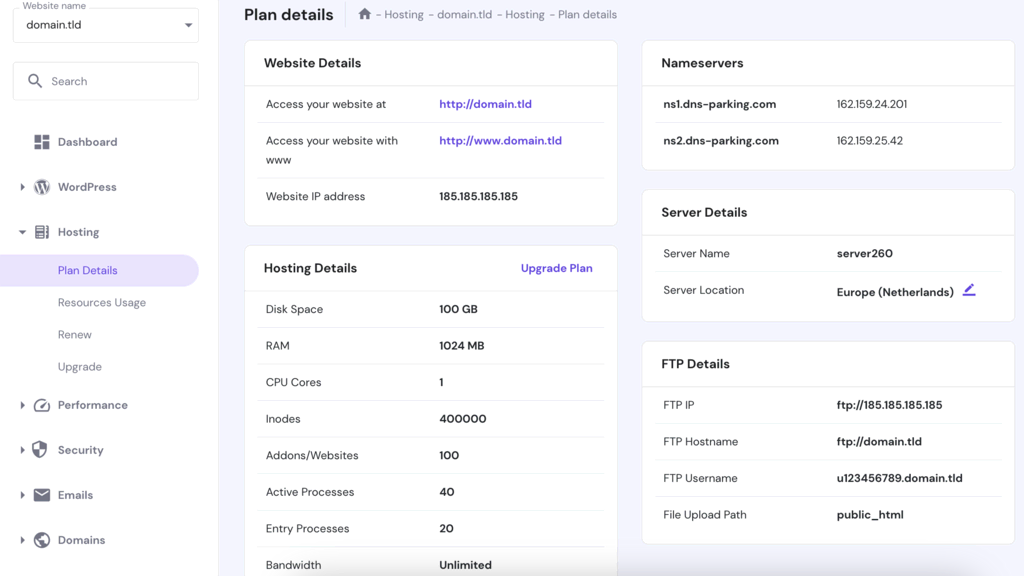
Both Hostinger and HostGator provide free migration services, ensuring users can transition their existing websites with ease. Hostinger offers an automatic website migration tool, which operates without any downtime, making it very appealing to users who prioritize a seamless transition. HostGator also offers free migration services, but these are typically handled manually by their support team. While effective, this method can sometimes be slower and might involve more back-and-forth with support compared to Hostinger’s automated process.
The platforms provide extensive knowledge bases filled with guides, how-to articles, and instructional content. Hostinger offers a wide range of resources alongside 24/7 chat and phone support. HostGator also boasts a detailed help center with an intuitive search function and around-the-clock support via live chat, phone, and ticketing, ensuring comprehensive user support.
User management
accessibility.
Score Components:
- Role customization (40%): Flexibility in creating and defining user roles and
permissions. - Ease of management (30%): User interface and tools for managing users.
- Access control (20%): Effectiveness of access control measures for different user
levels. - Scalability (10%): Ability to manage a growing number of users efficiently.
 8.2
8.2
 7.8
7.8
🏆 Winner Hostinger: Offers a streamlined and efficient user management experience.
Hostinger and HostGator both provide structured methods for managing user roles, permissions, and accessibility; however, Hostinger edges out with more flexibility. Hostinger allows adding new clients seamlessly through its hPanel, enabling various access levels such as “Manage services” and “Manage services and make purchases,” with explicit restrictions to safeguard account integrity. HostGator, while versatile with its three primary roles—Primary Contact, Administrative Contact, and Technical Contact—offers fewer customization options for user permissions. This added flexibility in Hostinger’s access levels provides an edge in managing diverse client requirements more effectively.
Hostinger’s hPanel and HostGator’s Customer Portal offer intuitive user interfaces and tools for managing users. Hostinger’s hPanel provides centralized service management, with functionalities for adding or migrating websites and managing domains and performance scores. Users can easily navigate to the necessary sections through straightforward clicks. HostGator’s Customer Portal focuses on simplicity, with a clear path for adding users and managing roles via the “User Roles & Permissions” section. Both interfaces provide user-friendly layouts, though Hostinger’s integrated insights and analytics tools offer a more holistic management experience.
In terms of access control measures, both platforms present secure methods to manage user permissions. Hostinger’s access levels come with detailed restrictions on critical functionalities such as payment management and domain changes, ensuring a high level of security. The platform efficiently supports growing user numbers without compromising on control and oversight. HostGator’s predefined roles also offer robust security but are slightly less adaptable to varying user needs. While adequate for many scenarios, the fewer customizable options might limit granular control as account complexity increases. Hostinger’s more detailed and flexible approach, alongside its centralized management capabilities, ensures efficient handling of a growing user base.
Hostinger User Roles Table:
| Role | Description | Access highlights |
|---|---|---|
| Manage services | Modify files and websites, manage VPS, change hosting-related settings. | Can manage all technical aspects of services but cannot access payment methods or make purchases. |
| Manage services and make purchases | Full management of services plus the ability to purchase new hosting plans or domains. | Similar to “Manage services” but includes purchasing capabilities; restricted from changing payment methods and profile info. |
HostGator User Roles Table:
| Role | Description | Access highlights |
|---|---|---|
| Primary Contact | Full authority to make changes, ideal for primary account holder. | Can edit account details, payments, and roles; manage, purchase, and renew products; edit WHOIS information. |
| Administrative Contact | Suitable for administrative tasks with limited permissions. | Can manage payments, purchase new products, and manage roles and services; cannot edit primary contact or technical information. |
| Technical Contact | Focused on product maintenance with restricted capabilities. | Can manage products and services and edit WHOIS technical information; cannot handle payments or other user roles. |
Customer support
hosting provider.
Score Components:
- Support communication channels (30%): Measures the variety of customer support types
provided (live chat, chatbot, email, phone, etc.) - Availability (20%): Assesses the availability hours for each channel, including 24/7
support options. - Technical support quality (30%): Assesses whether the provider offers comprehensive
technical support, including hardware upgrades (e.g., HDD to SSD), software installations, and web
server configuration changes. - Enterprise support (20%): Checks if there are dedicated or priority support services
for enterprise-level customers.
 8.3
8.3
 8.6
8.6
🏆 Winner HostGator: HostGator provides comprehensive customer support options and promotional offers for new users.
 |
 |
|
|---|---|---|
Phone support |
||
Live chat support |
||
Chatbot |
||
Email/ticket support |
||
Enterprise support (dedicated agent, priority support) |
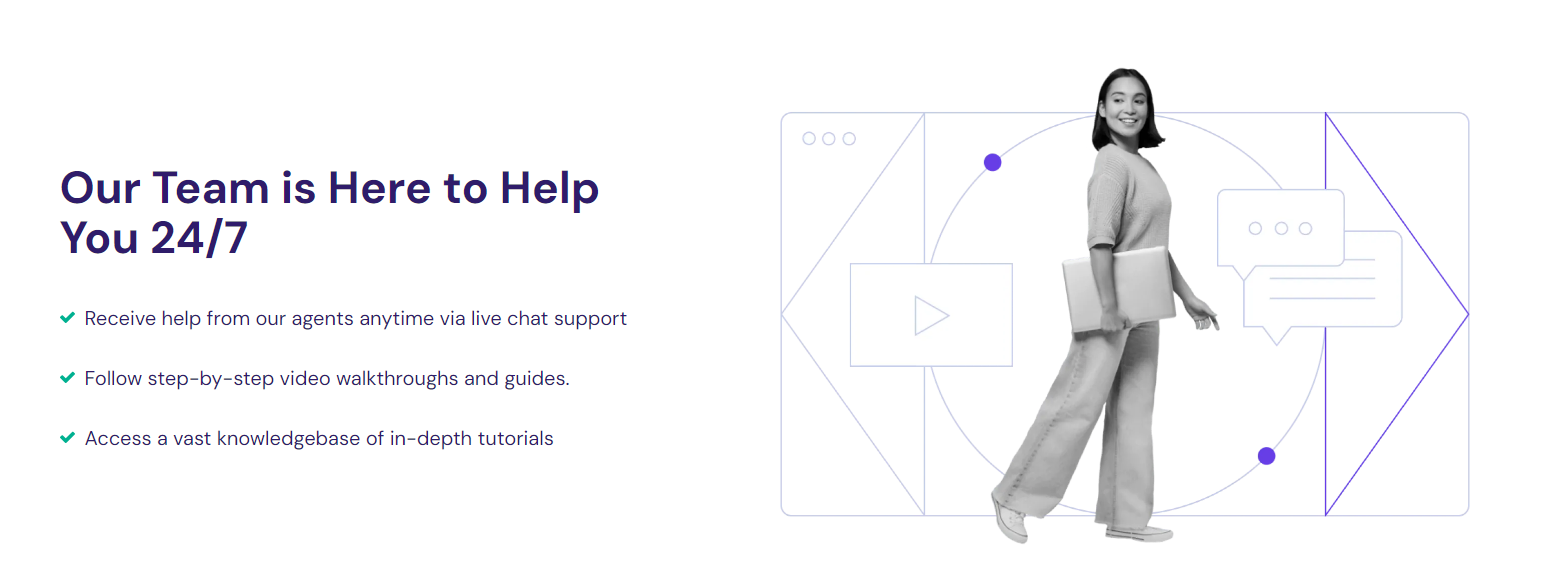
Hostinger and HostGator both offer 24/7 live chat support and extensive knowledge bases. HostGator provides phone support and has a robust presence on social media platforms like Twitter and Facebook, giving users multiple avenues for support. Hostinger, however, focuses on email support for various inquiries, including account recovery and abuse reports. Hostinger also features Hostinger Academy for video tutorials and offers priority support in higher-tier plans.
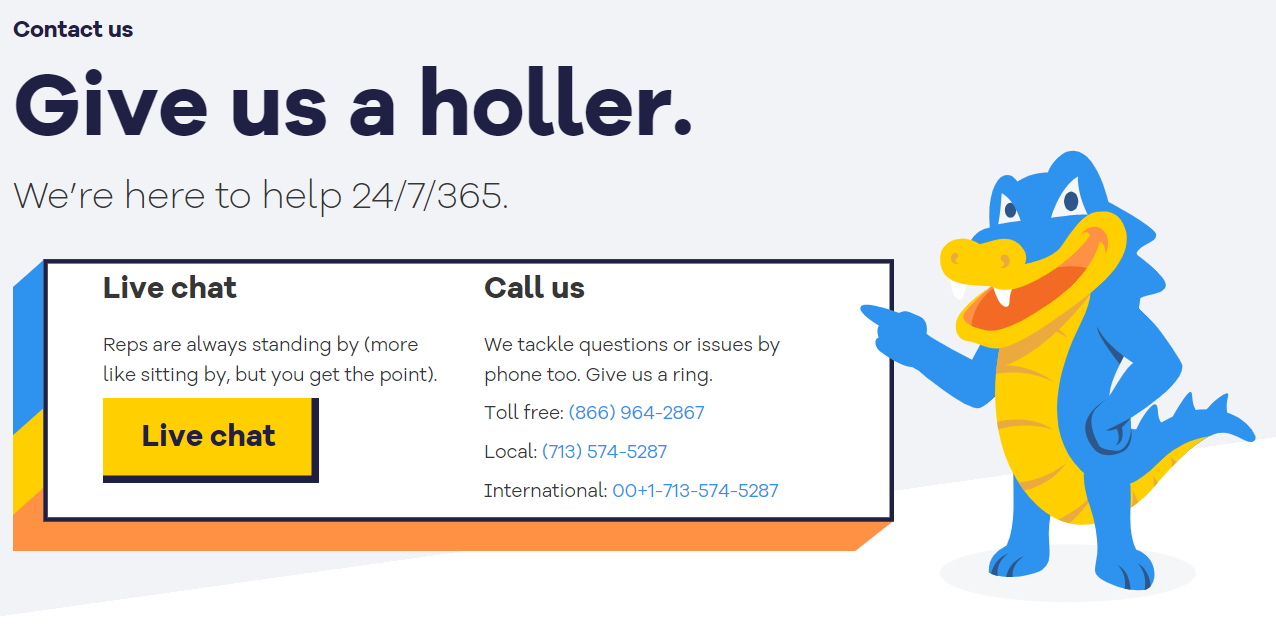
Hostinger supports customers in over 10 languages and emphasizes quick response times, while HostGator assures uptime and reliability with a 99.9% uptime guarantee. HostGator’s offerings, including free domain registration for certain plans and promotional rates for new customers, make it more attractive for those seeking cost-effective solutions. Given their higher score, HostGator is the recommended choice for customer support.
Hostinger vs Hostgator: User feedback
Hostinger receives high praise for its user-friendly interface, competitive pricing, and robust performance. Customers appreciate the wide range of features, including seamless website migration, the intuitive hPanel, and excellent uptime. The standout feature, consistently mentioned across reviews, is the exceptional and responsive customer support available 24/7 via live chat, although some users express a desire for phone support. On the downside, a few customers report issues with renewal pricing, occasional slow support response times, and the limitations of the lower-tier plans.
HostGator offers affordable, user-friendly web hosting services, which are appealing to both beginners and budget-conscious users. Key strengths include competitive pricing, reliable uptime, free SSL certificates, and efficient customer support. However, customers have reported issues such as slow server performance, aggressive upselling, rising renewal prices, and limited advanced features. While the overall experience can be positive, especially for small-scale or low-traffic sites, technical support responsiveness and server speed occasionally fall short, impacting the user experience.
Hostinger vs Hostgator: FAQ
Are both platforms suitable for beginners?
Both Hostinger and HostGator are suitable for beginners, offering user-friendly interfaces and various customer support options. Hostinger’s custom-built hPanel is designed for ease of use and offers numerous tutorials and automated tools, making it accessible for new users. HostGator also provides a standard cPanel and multiple support channels, though it might require slightly more familiarity to navigate compared to Hostinger’s interface.
What are the major differences in pricing and value between hostinger and hostgator?
Hostinger offers more affordable and feature-rich plans compared to HostGator. Hostinger’s plans start at $3.99/mo for shared hosting and provide numerous perks such as free domain, SSL certificates, and WordPress acceleration tools. In contrast, HostGator’s plans are generally more expensive, starting at $17.99/mo for shared hosting and include fewer included features, making Hostinger a more cost-effective option.
Which platform offers better customer support?
HostGator provides more comprehensive customer support options including phone support, live chat, and multiple social media channels. Hostinger also offers 24/7 live chat and extensive tutorials but lacks phone support, which some users might miss. HostGator’s multiple support avenues and quick response times make it a stronger choice for those prioritizing diverse customer support methods.
Which service is more suitable for hosting a high-traffic website?
Hostinger is more suitable for hosting high-traffic websites due to its advanced performance features like high-speed NVMe storage, LiteSpeed web servers, and a global CDN. These tools ensure faster load times and minimize latency. Although HostGator offers solid performance with SSD storage and unmetered bandwidth, it doesn’t match Hostinger’s extensive performance optimizations, making Hostinger the better choice for high-traffic sites.
What are the differences in the control panels offered by each hosting service?
Hostinger utilizes a custom-built control panel called hPanel, which is designed to be intuitive and user-friendly, particularly beneficial for beginners. It offers centralized service management and integrated insights and analytics tools. In contrast, HostGator uses the widely recognized standard cPanel, which, while functional, may require more familiarity to navigate compared to Hostinger’s hPanel.
The making of this blog
We followed a clear, step-by-step process to write and research this article.










